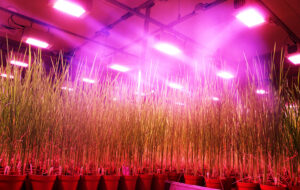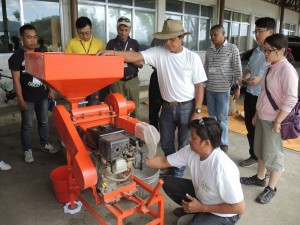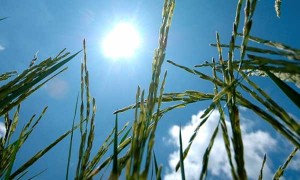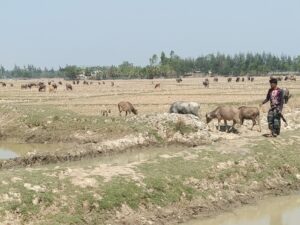Many farmers in Rajshahi District, Bangladesh have shifted to growing vegetables because of water scarcity brought on by climate change.
Rice, which was the region’s main crop, is now considered a “loser crop” and has been replaced with cabbage, cauliflower, gourds, and other vegetable crops that require less water.
Currently, vegetables are grown on about 78,500 hectares in Rajshahi, making it the nation’s largest vegetable-producing district.
Read the article @Daily Trust
How rice plants “manage” water under drought
Because of low rainfall and lack of irrigation infrastructure, water management is often not an option for rainfed lowland rice farmers. But, thanks to the latest rice breeding research, recently developed varieties that produce higher yields under drought have their own built-in water management strategy. These plants can capture and use water more effectively when it is limited. By planting these drought-tolerant varieties, rainfed rice farmers can take advantage of the limited amounts of water in their fields that otherwise would not be accessible if drought-susceptible varieties were grown.
Farmers’ participatory evaluation of alternate wetting and drying irrigation method on greenhouse gas emission, water productivity, and paddy yield in Bangladesh
Due to Bangladesh’s frequent water shortages, sufficient water to irrigate rice fields is increasingly scarce. Additionally, due to global warming, severe changes in the pattern of precipitation and drought have become more prevalent, posing a substantial danger to managing water for rice farming. Thie purpose of this study was to determine the prospect for alternate wetting and drying to reduce greenhouse gas emissions and its effect on rice production and irrigation water saving in the farmers’ rice fields.
The food-water-energy nexus: Using gravity drainage to intensify production systems in the coastal zone of Bangladesh
Sustained economic growth, the quality of life, and the social stability of a rapidly growing Bangladesh depend largely on food security. Chronic or even sporadic food shortages could derail Bangladesh’s impressive economic growth of the last few decades. Although Bangladesh as a whole is currently self-sufficient in rice production, the country faces immense challenges to sustaining its self-sufficiency status.







